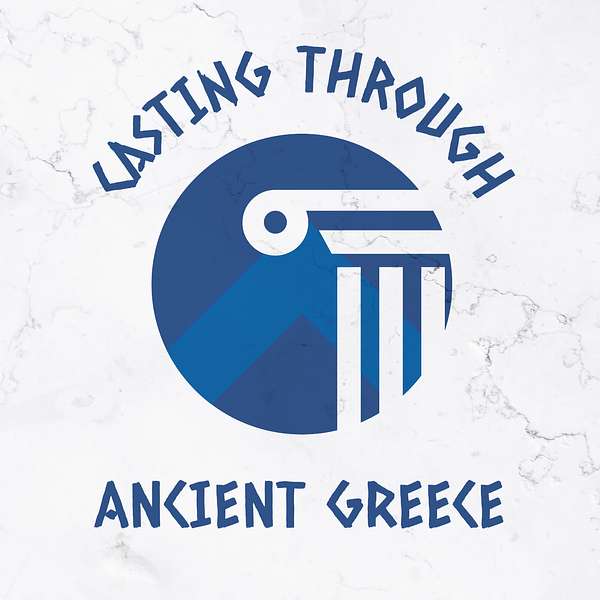
Casting Through Ancient Greece
Casting Through Ancient Greece
74: Attica Invaded
Use Left/Right to seek, Home/End to jump to start or end. Hold shift to jump forward or backward.
The first year of the Peloponnesian war is now upon us. The first phase of this nearly 30-year struggle would be known as the Archidamian War, named after the Spartan king Archidamus, who had tried to prevent war developing in the first place. Archidamus being the only available Spartan king, the other not yet of age, would find himself leading the Peloponnesian forces as they invaded Attica in 431 BC.
Sparta would launch a campaign where the main focus was on ravaging the Athenian country side to try and force the Athenians from out behind their walls. This then, as the Spartan calculated, would see a large battle between two hoplite armies develop, where Sparta excelled. However, Athens had been working on its defences and security for some 50 years. This would see that their long walls would neutralise an invading land force, while the strength of their navy and empire would see that resources would still flow in during a siege.
Activities on land would not be the only actions undertaken during this first year. Athens would launch naval operations directed at the coast of the Peloponnese and surrounding areas. They would conduct raids, recruit new allies and secure their defences further with this developing war now in effect. Though, for the time being, Athens was looking to operate in a defensive manner while Sparta was on the offensive.
During this first year, we would also find that opinion but in both Sparta and Athens would waver when it came to the respective leaders of both cities. Archadamius, known for his opposition to war having been declared would delay and drag his feet on a number of occasions during the campaign, perhaps looking for an opportunity for negotiations. While Pericles would not allow his forces from out behind the walls of Athens while the Peloponnesians were on Attic soil, this seeing discontent within the hoplite class grow. However, the conflict would not be resolved by the end of the campaigning season and the Peloponnesian war would continue.
💬 Stay Connected with Casting Through Ancient Greece
Follow us for updates, discussions, and more ancient Greek content:
🌐 Website
📸 Instagram
🐦 Twitter
📘 Facebook
🎙️ Love the show? Don’t forget to subscribe, leave a review, and share it with fellow history enthusiasts. Your support helps keep the stories of ancient Greece alive!